
Ankara: The Heart of Turkey
Ankara, the capital of Turkey, is a city that blends the charm of its ancient past with the vibrancy of its modern present. As a central hub of political, cultural, and historical significance, Ankara offers a unique travel experience that is rich in diversity and heritage. Start your journey in the city's historical quarter, Ulus, where you can explore the remnants of Roman, Byzantine, and Ottoman influences. The Ankara Castle, perched on a hill, provides panoramic views of the city and a glimpse into its storied past. Nearby, the Museum of Anatolian Civilizations houses artifacts that date back to the Paleolithic era, making it a must-visit for history enthusiasts. Modern-day Ankara is equally compelling with its bustling streets, chic cafes, and contemporary art galleries. The Kızılay district is the beating heart of the city, filled with shops, restaurants, and nightlife. For a more relaxed pace, visit the serene Eymir Lake or the lush Atatürk Forest Farm, where you can enjoy a picnic or sample local dairy products. No visit to Ankara is complete without paying homage to Anıtkabir, the mausoleum of Mustafa Kemal Atatürk, the founder of modern Turkey. This monumental structure is not only an architectural marvel but also a symbol of national pride and resilience.
Local tips in Ankara
- Visit the Museum of Anatolian Civilizations early in the day to avoid crowds.
- Use public transport or taxis to navigate the city; traffic can be heavy at times.
- Try local dishes like 'manti' and 'doner' at traditional restaurants.
- Visit Anıtkabir during the changing of the guard ceremony for a memorable experience.
- Wear comfortable walking shoes; many attractions are best explored on foot.
Neighbourhoods in Ankara
Ankara: The Heart of Turkey
Ankara, the capital of Turkey, is a city that blends the charm of its ancient past with the vibrancy of its modern present. As a central hub of political, cultural, and historical significance, Ankara offers a unique travel experience that is rich in diversity and heritage. Start your journey in the city's historical quarter, Ulus, where you can explore the remnants of Roman, Byzantine, and Ottoman influences. The Ankara Castle, perched on a hill, provides panoramic views of the city and a glimpse into its storied past. Nearby, the Museum of Anatolian Civilizations houses artifacts that date back to the Paleolithic era, making it a must-visit for history enthusiasts. Modern-day Ankara is equally compelling with its bustling streets, chic cafes, and contemporary art galleries. The Kızılay district is the beating heart of the city, filled with shops, restaurants, and nightlife. For a more relaxed pace, visit the serene Eymir Lake or the lush Atatürk Forest Farm, where you can enjoy a picnic or sample local dairy products. No visit to Ankara is complete without paying homage to Anıtkabir, the mausoleum of Mustafa Kemal Atatürk, the founder of modern Turkey. This monumental structure is not only an architectural marvel but also a symbol of national pride and resilience.
When is the best time to go to Ankara?
Iconic landmarks you can’t miss
Anıtkabir
Explore Anıtkabir, the monumental mausoleum of Atatürk, a significant symbol of Turkey's rich history nestled in the heart of Ankara.
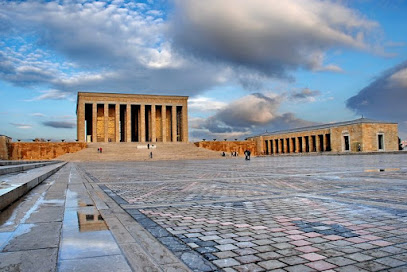
Ataturk Statue
Explore the Ataturk Statue in Ankara, a monumental tribute to Turkey's founding father, surrounded by scenic gardens and rich history.
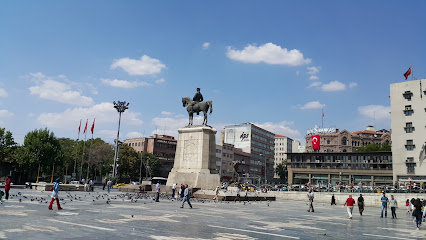
Kuğulu Park
Discover the tranquil beauty of Kuğulu Park in Ankara, where nature and serenity meet in a picturesque urban oasis.
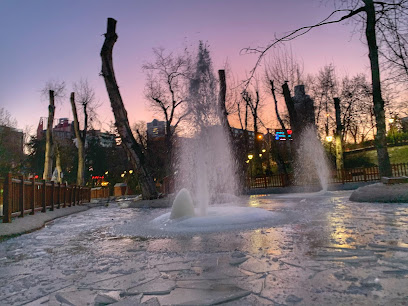
Haci Bayram Mosque
Visit Haci Bayram Mosque in Ankara, a stunning example of Ottoman architecture and a serene place for reflection and cultural immersion.
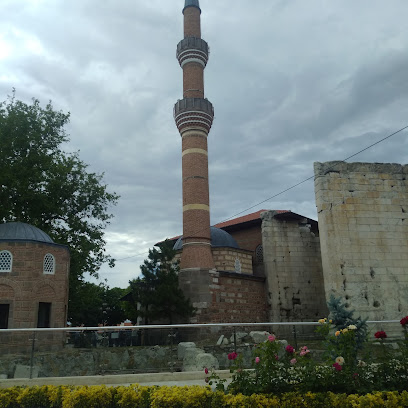
Ankara Castle
Discover the breathtaking views and rich history at Ankara Castle, a must-see landmark in Turkey's vibrant capital city.
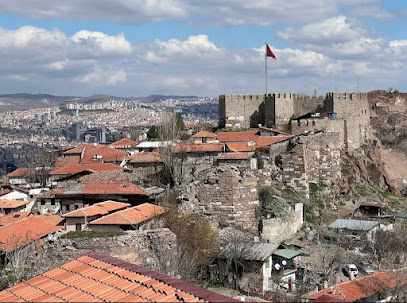
Ulucanlar Prison Museum
Explore the haunting history of justice and freedom at Ulucanlar Prison Museum in Ankara, where stories of resilience come to life.
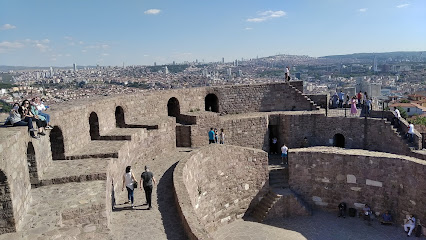
Museum of Anatolian Civilizations
Explore the fascinating history of Anatolia at the Museum of Anatolian Civilizations, where ancient artifacts narrate the stories of diverse cultures.
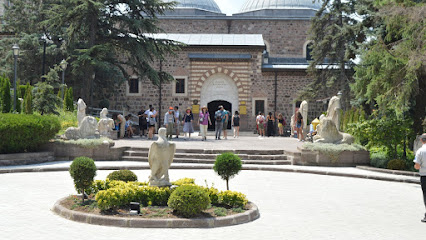
Kocatepe Mosque
Discover the breathtaking Kocatepe Mosque in Ankara, a magnificent blend of modern architecture and rich Islamic heritage, perfect for cultural exploration.
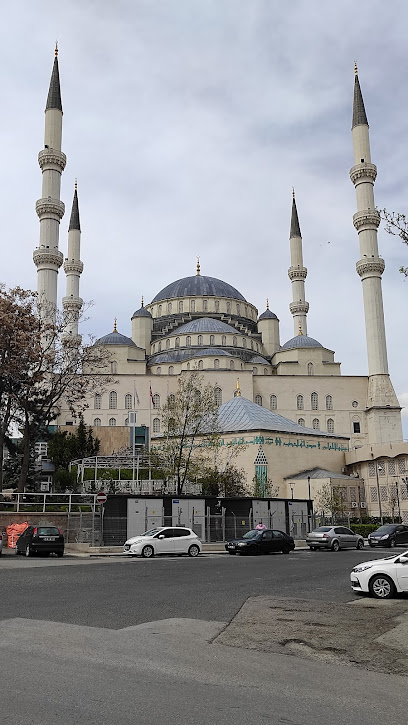
Dikmen Valley
Explore the natural beauty and tranquility of Dikmen Valley, an urban park in Ankara perfect for relaxation, recreation, and family outings.
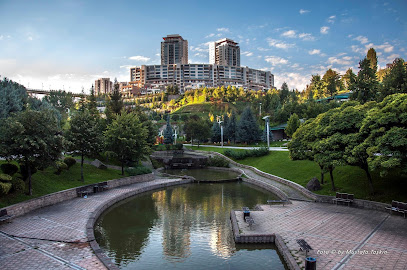
Beştepe Millet Camii
Discover the breathtaking beauty and architectural grandeur of Beştepe Millet Camii, a must-see mosque and cultural landmark in Ankara.
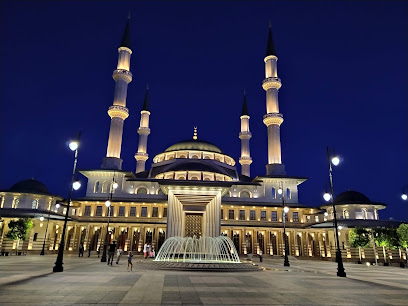
Rahmi M. Koc Museum Ankara
Explore the rich industrial heritage of Turkey at Rahmi M. Koç Museum in Ankara, featuring engaging exhibits on transportation, machinery, and communication.
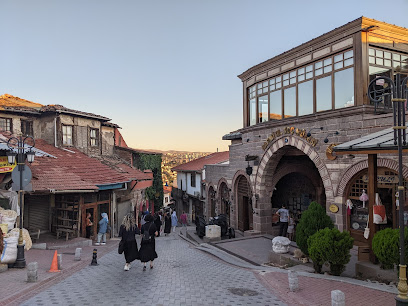
50th Year Park
Experience the tranquility of nature at 50th Year Park in Ankara, a must-visit destination for relaxation and leisure activities.
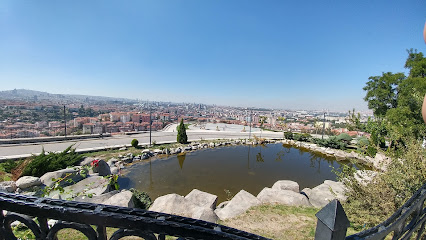
Ankara Painting and Sculpture Museum
Explore the rich artistic heritage of Turkey at the Ankara Painting and Sculpture Museum, showcasing masterpieces and contemporary artworks in a stunning setting.

Keçiören Falls
Experience the serenity of Keçiören Falls, a stunning natural attraction in Ankara, perfect for relaxation and family picnics amidst breathtaking landscapes.
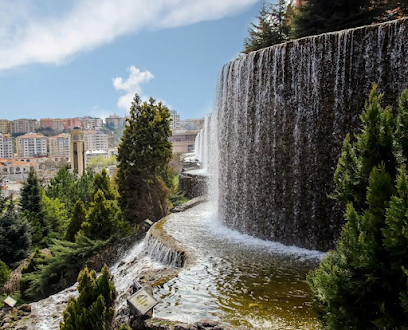
Mehmet Akif Ersoy Home Museum
Explore the life and works of Turkey's national poet at the Mehmet Akif Ersoy Home Museum, a cultural gem in Ankara's heart.
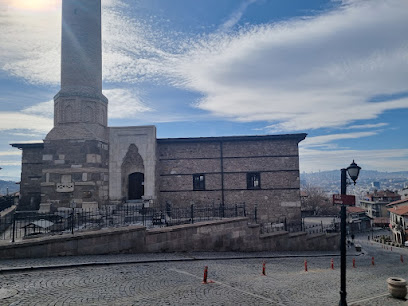
Unmissable attractions to see
Gençlik Park
Discover the beauty of nature and leisure at Gençlik Park, a serene urban oasis in Ankara, perfect for relaxation and outdoor fun.
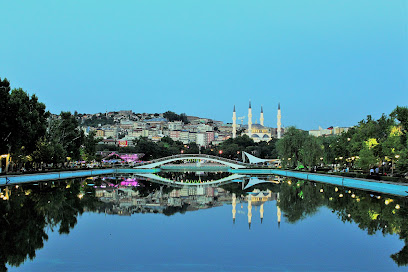
Haci Bayram Mosque
Explore the beauty and tranquility of Haci Bayram Mosque, a historical gem in Ankara, showcasing Ottoman architecture and rich cultural heritage.
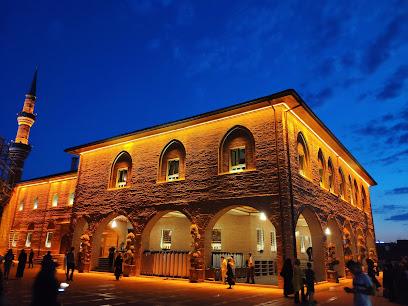
Kuğulu Park
Explore the serene beauty of Kuğulu Park, a peaceful haven in Çankaya, Ankara, perfect for relaxation, family outings, and enjoying nature's splendor.
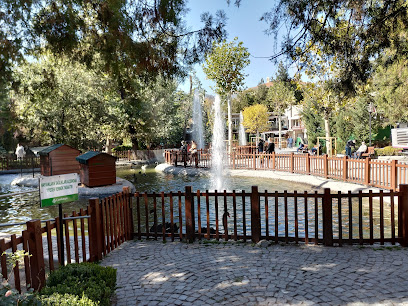
Ankara Castle
Explore Ankara Castle, a historical marvel offering stunning views and a glimpse into Turkey's rich past, nestled in the heart of Ankara.
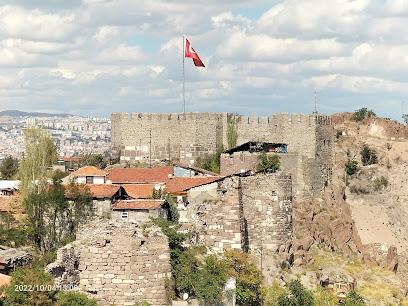
Ulucanlar Prison Museum
Explore Turkey's complex history at Ulucanlar Prison Museum, a place of remembrance and reflection on justice and resilience.
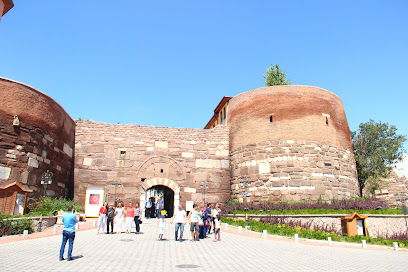
Museum of Anatolian Civilizations
Explore the rich tapestry of Anatolian history at Ankara's Museum of Anatolian Civilizations, a must-visit for culture enthusiasts.
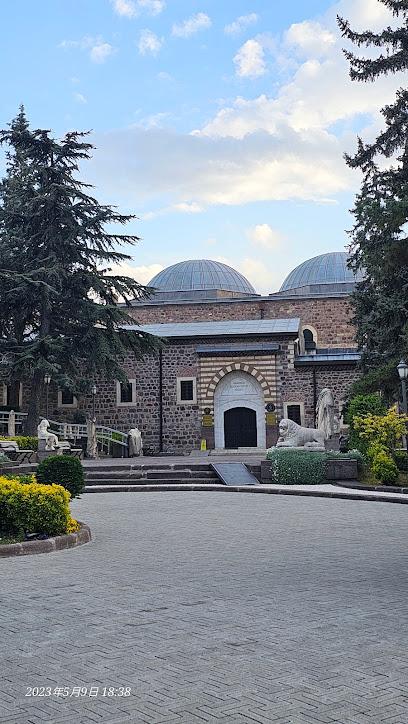
Independence Park
Explore Independence Park, Ankara's lush urban oasis, perfect for relaxation, picnics, and nature walks amid vibrant landscapes.
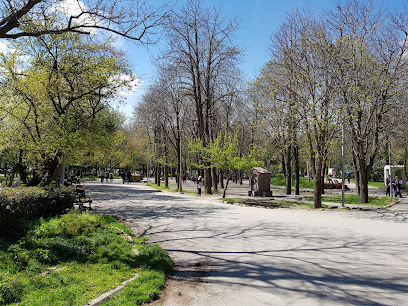
Seğmenler Parkı
Discover tranquility and stunning views at Seğmenler Parkı, the perfect urban oasis in Ankara for relaxation and family fun.
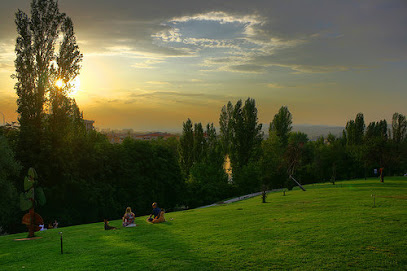
Aqua Vega Aquarium
Explore the wonders of Aqua Vega Aquarium in Ankara, where the ocean's beauty comes to life with thousands of marine species in captivating exhibits.
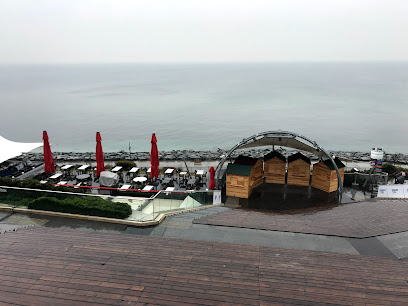
Botanical Park
Discover the serene beauty of the Botanical Park in Ankara, a lush oasis filled with diverse flora and tranquil spaces perfect for relaxation.
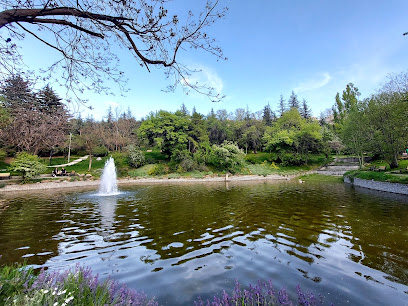
Ahlatlıbel Atatürk Parkı
Discover tranquility at Ahlatlıbel Atatürk Parkı, a lush urban park in Çankaya, Ankara, perfect for relaxation, recreation, and family fun.
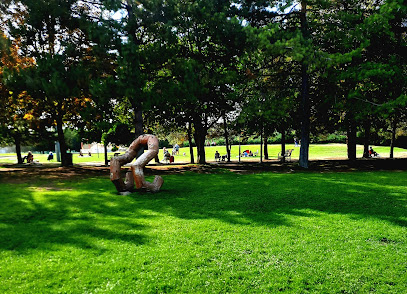
METU Forest
Explore the natural beauty of METU Forest in Çankaya, a perfect blend of hiking trails, serene landscapes, and rich biodiversity.
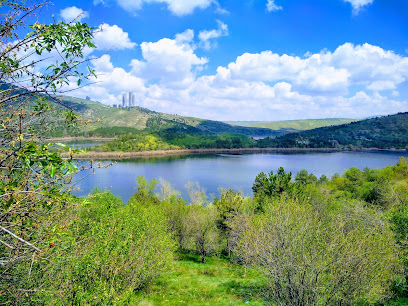
Rahmi M. Koc Museum Ankara
Explore the Rahmi M. Koc Museum in Ankara for an immersive journey through Turkey's industrial and maritime heritage in a beautifully restored setting.
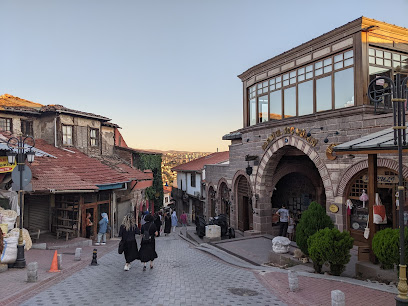
Republic Museum (The Second Parliament Building)
Discover the Republic Museum in Ankara, where Turkey's political history comes alive through engaging exhibits and rich artifacts.
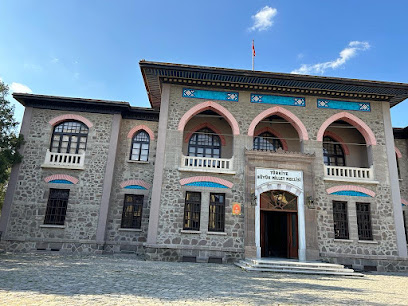
50th Year Park
Experience the lush landscapes and stunning views at 50th Year Park, a serene oasis in Ankara perfect for relaxation and family outings.
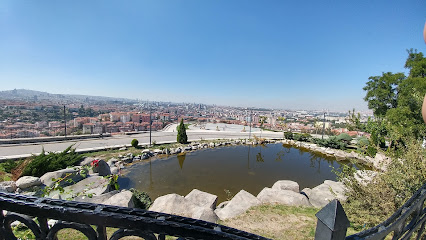
Essential places to dine
Kugulupark Restaurant & Cafe
Discover the culinary delights at Kugulupark Restaurant & Cafe in Ankara – where authentic Turkish flavors meet serene park views.
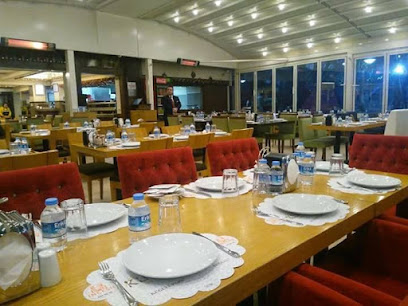
Cafe des Cafes
Experience the heart of Ankara at Café des Cafés—your go-to destination for breakfast, lunch, and delicious desserts in a cozy atmosphere.
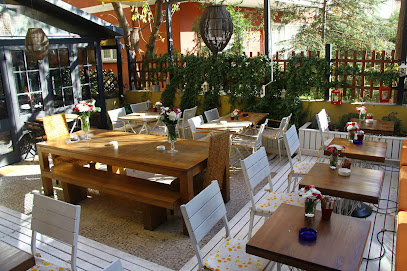
Afitap Meyhane Tunus
Experience the vibrant flavors of Turkish cuisine at Afitap Meyhane Tunus in Ankara – where tradition meets taste.
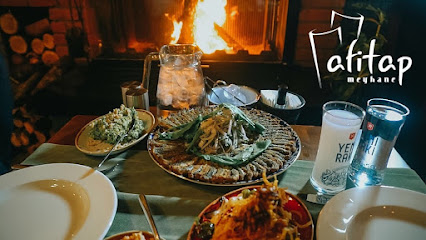
Trilye Restaurant
Experience exquisite seafood dining at Trilye Restaurant in Ankara, where fresh ingredients meet exceptional service.
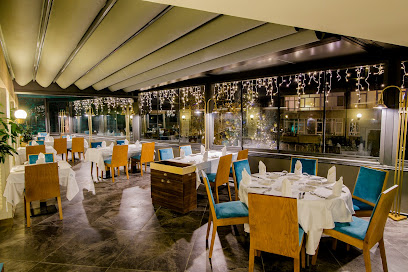
Bacchus Cafe Hamamönü
Discover culinary delights at Bacchus Cafe Hamamönü - where tradition meets modernity in Ankara's historic district.
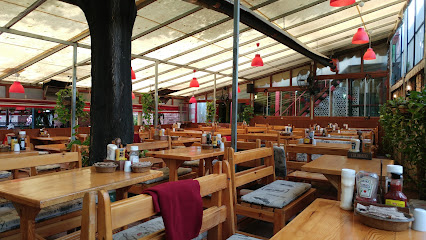
Bogazici Lokantasi
Experience authentic Turkish flavors at Bogazici Lokantasi in Ankara, where tradition meets taste in every dish.
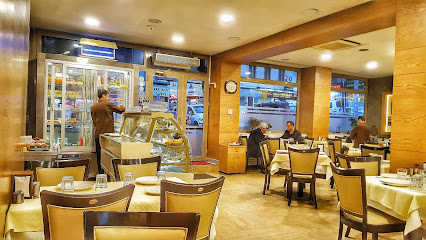
Urumchi Uyghur Restaurant
Discover authentic Uyghur cuisine in Çankaya at Urumchi Uyghur Restaurant, where every dish tells a story of culture and flavor.

TAKA BALIK RESTAURANT ( FISH FİNE DİNİNG)
Experience exquisite seafood dining at Taka Balik Restaurant in Ankara—where fresh flavors meet fine dining ambiance.
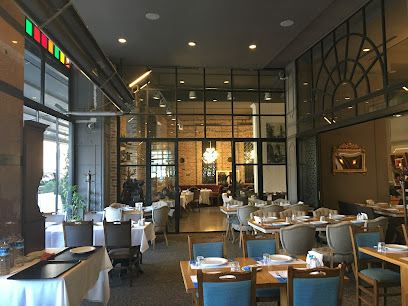
Hanzade Konağı
Experience authentic Turkish cuisine at Hanzade Konağı in Ankara's historic Hamamönü district; a perfect blend of tradition and flavor.
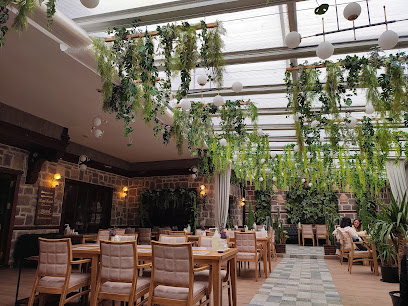
Louise Cafe Brasserie & Loft
Discover culinary excellence at Louise Cafe Brasserie & Loft in Ankara - where every meal is an experience filled with flavor and ambiance.
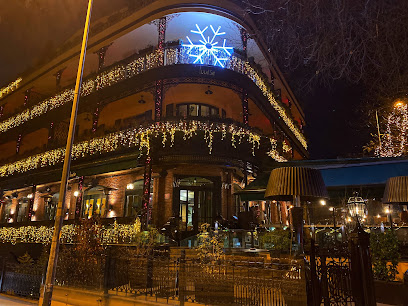
Kumsal Lokantası
Experience exquisite seafood dining at Kumsal Lokantası in Çankaya, Ankara - where every dish tells a story of fresh flavors.
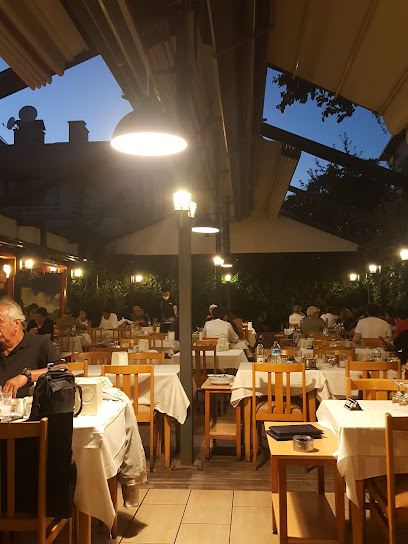
La Gioia
Experience authentic Italian flavors at La Gioia, Ankara’s top destination for exquisite dining and vibrant atmosphere.
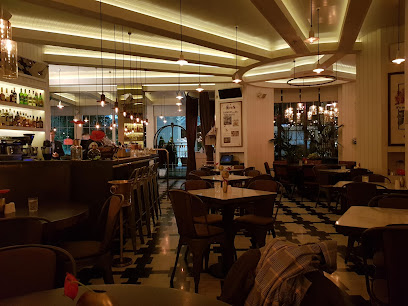
Kerasus
Discover Kerasus: A delightful blend of traditional Turkish flavors and modern cuisine in the heart of Ankara's Altındağ district.
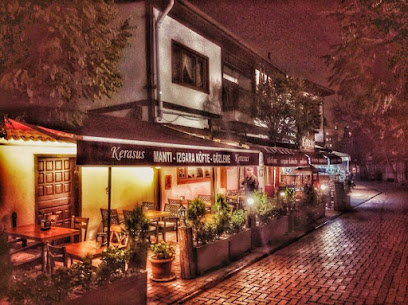
Fige Restaurant
Experience the exquisite flavors of Turkish cuisine at Fige Restaurant in Çankaya - where tradition meets modern elegance.
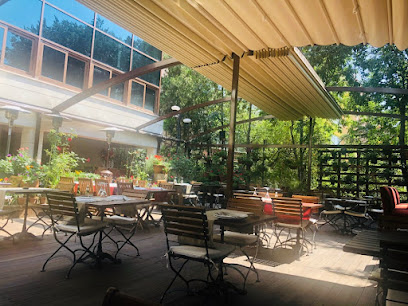
Mezzaluna
Discover authentic Italian flavors at Mezzaluna in Kavaklıdere, Ankara - where every dish tells a story.
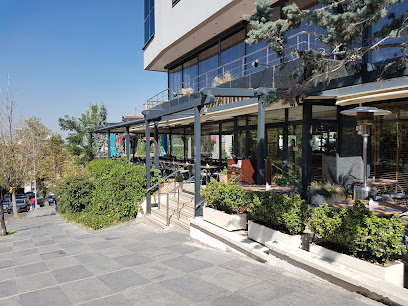
Markets, malls and hidden boutiques
ANKAmall
Discover ANKAmall: Ankara's premier shopping destination with diverse shops, delicious dining, and family-friendly entertainment under one roof.
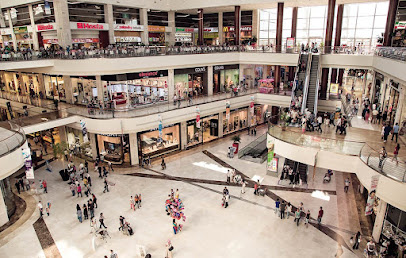
Kentpark Shopping Center
Explore Kentpark Shopping Center in Ankara: Enjoy shopping, dining, and entertainment in a vibrant modern setting.
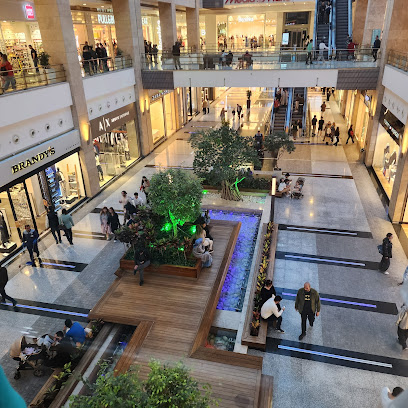
Armada Shopping and Business Center
Explore a blend of shopping, dining, and entertainment at Armada Shopping and Business Center in Ankara, a destination perfect for all ages.
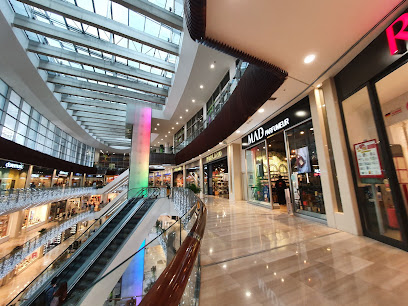
ACity Outlet Shopping Center
Discover fashion, food, and fun at ACity Outlet Shopping Center in Ankara, where shopping meets entertainment for the whole family.
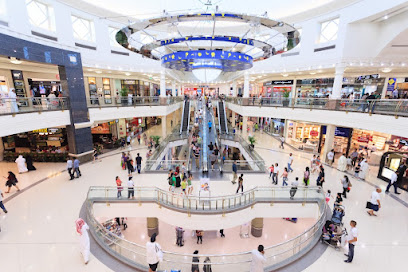
Suluhan Bazaar
Experience the lively atmosphere of Suluhan Bazaar, a perfect mix of shopping and rich cultural heritage in the heart of Ankara.
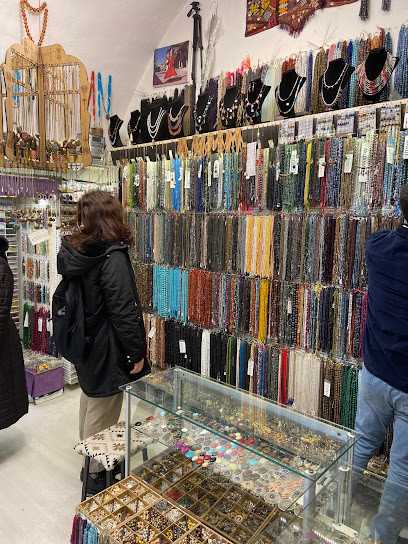
Panora Alışveriş ve Yaşam Merkezi
Explore Panora Alışveriş ve Yaşam Merkezi, Ankara's premier shopping mall for a blend of shopping, dining, and entertainment in a vibrant atmosphere.
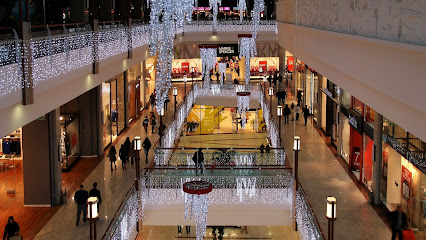
Gordion Shopping Mall
Explore Gordion Shopping Mall in Ankara for a unique shopping experience with diverse retail, dining, and entertainment options.
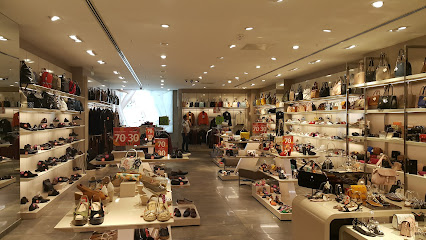
Taurus Shopping Centre
Explore Taurus Shopping Centre in Ankara for an unforgettable shopping experience with diverse brands, dining, and entertainment options.
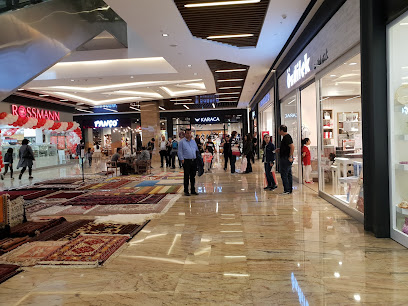
Karum Mall
Explore Karum Mall in Ankara - a vibrant shopping haven blending local charm with international brands, perfect for every tourist's shopping spree.
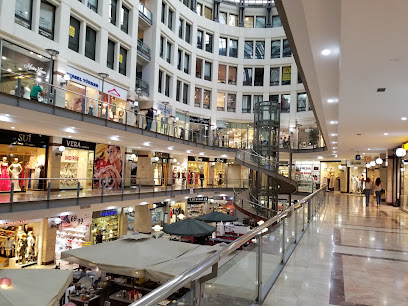
One Tower Shopping Center
Discover an ultimate shopping experience at One Tower Shopping Center in Ankara, featuring top brands, diverse dining, and exciting entertainment.
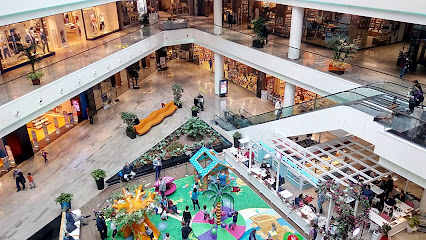
Boyner Panora AVM
Discover fashion and lifestyle at Boyner Panora AVM, Ankara's premier department store offering a blend of shopping and dining experiences.

Koç Antik Saklı Çarşı - Ulus
Explore Koç Antik Saklı Çarşı in Ulus, Ankara - A captivating antique furniture store filled with historical treasures and unique artifacts.
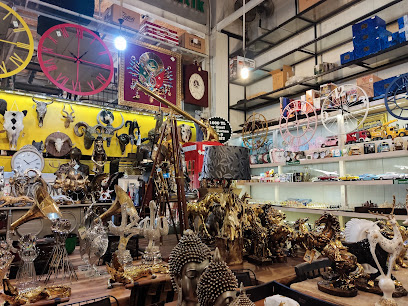
ipekbazaar
Explore Ipek Bazaar in Ankara for exquisite leather boots, top-notch repairs, and shoe shining services, creating an essential stop for every traveler.
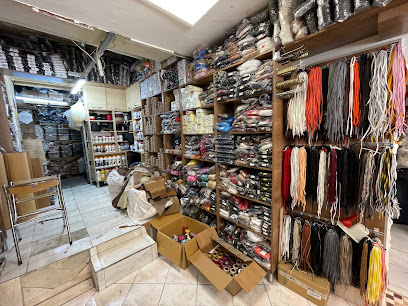
Resul Moda Evi
Discover the enchanting bridal collection at Resul Moda Evi, a premier bridal shop in Ankara offering personalized service and exquisite designs.
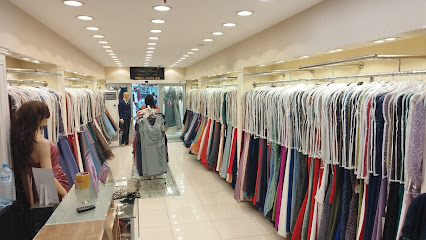
SIRAC Jewelry
Explore SIRAC Jewelry, a hidden gem in Ankara offering exquisite handcrafted jewelry, antiques, and local crafts for the perfect souvenir.
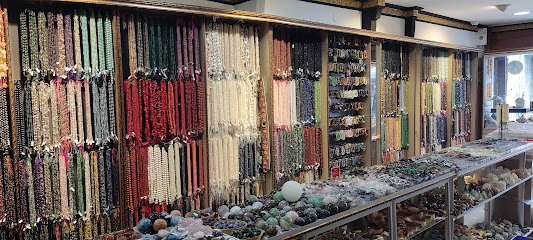
Essential bars & hidden hideouts
Loophole Booze Bite & Fun
Discover the perfect blend of gourmet cuisine and lively entertainment at Loophole Booze Bite & Fun in Ankara's Beşevler neighborhood.
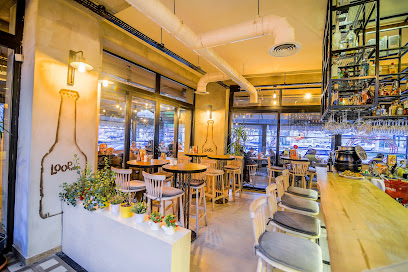
Zula Bar
Experience the vibrant nightlife of Ankara at Zula Bar, where great drinks and live entertainment create the perfect atmosphere for a memorable night out.
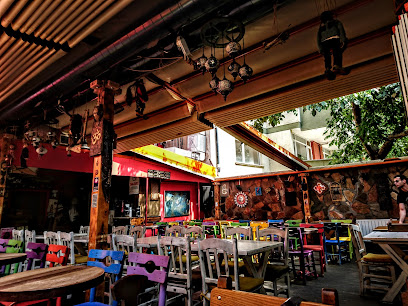
James Cook Cafe, Pub & Restaurant
Delight in exquisite local and international cuisine at James Cook Cafe, Pub & Restaurant in Ankara's Kavaklıdere district.
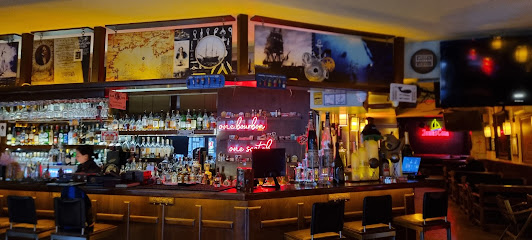
London Pub
Discover the lively and welcoming ambiance of London Pub in Ankara, perfect for drinks, snacks, and social gatherings.
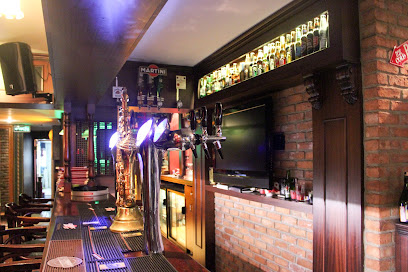
The Muddy Waters
Experience the vibrant nightlife of Ankara at The Muddy Waters, a lively bar offering unique cocktails and a welcoming atmosphere.
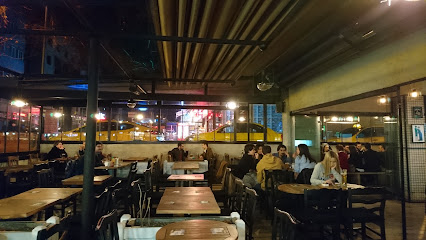
Minister Pub
Discover the vibrant nightlife at Minister Pub, where delightful drinks and delicious bites await in the heart of Ankara.
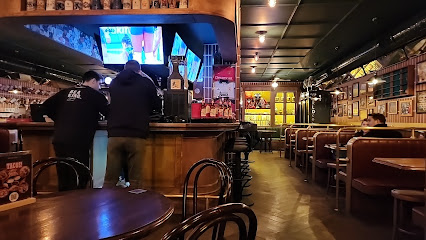
Always Rock Bar
Experience the vibrant nightlife at Always Rock Bar in Ankara, where delicious drinks and live music come together for an unforgettable evening.
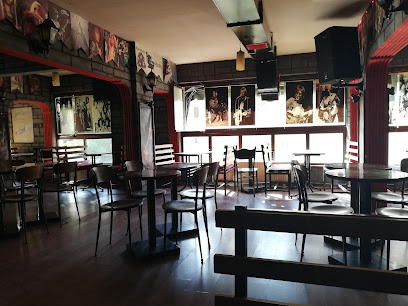
Riff Pub
Experience the vibrant nightlife of Ankara at Riff Pub, where great drinks and an electric atmosphere await you.
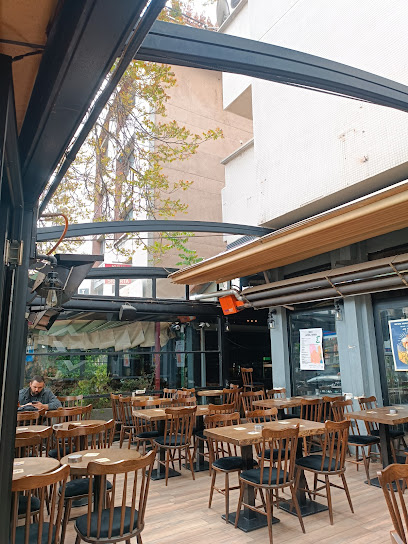
21 Bar
Discover the lively ambiance and diverse drink selection at 21 Bar in Kavaklıdere, a top nightlife destination in Ankara.
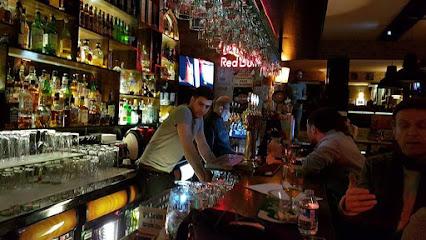
Black Pub
Discover the lively nightlife at Black Pub in Ankara, where great drinks meet a vibrant social atmosphere.
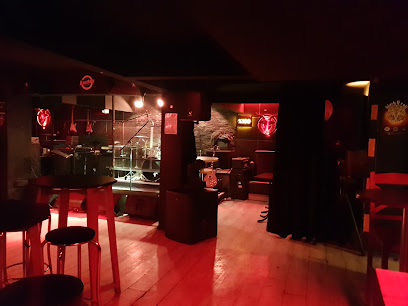
Mr.B Cocktail Bar
Discover the lively Mr.B Cocktail Bar in Çankaya, Ankara - a perfect spot for innovative cocktails and vibrant nightlife.
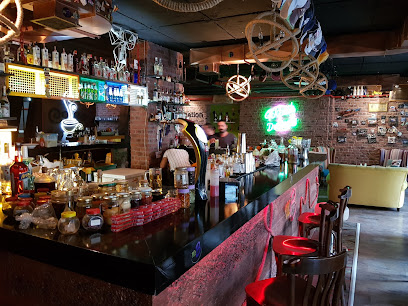
Corvus Pub
Discover the vibrant atmosphere of Corvus Pub in Ankara, where local flavors and a welcoming ambiance meet for an unforgettable experience.
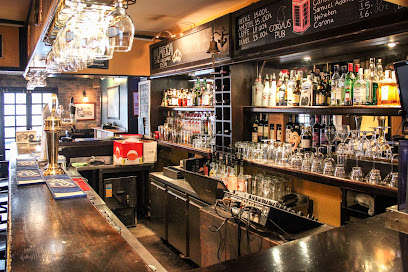
Beste Pub
Discover Beste Pub in Ankara – a lively bar with great drinks, friendly service, and an unforgettable atmosphere.
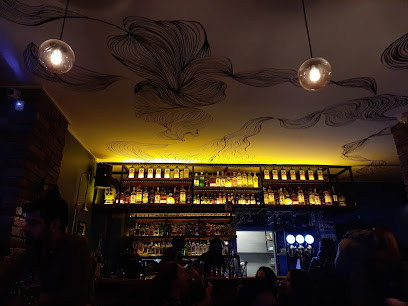
Babel Pub
Discover Babel Pub in Ankara, where vibrant nightlife meets a diverse menu and a welcoming atmosphere for unforgettable evenings.
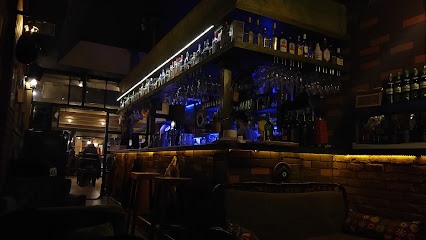
Local Phrases
-
- HelloMerhaba
[Mer-ha-ba] - GoodbyeHoşça kal
[Hosh-cha kal] - YesEvet
[Eh-vet] - NoHayır
[Ha-yuhr] - Please/You're welcomeLütfen
[Loot-fen] - Thank youTeşekkür ederim
[Teh-sheh-kur eh-deh-rim] - Excuse me/SorryÖzür dilerim
[Oz-ur dee-leh-rim] - How are you?Nasılsın?
[Nas-il-sun] - Fine. And you?İyiyim. Sen?
[Ee-yee-eem. Sen?] - Do you speak English?İngilizce konuşabiliyor musun?
[Ing-il-iz-je ko-noo-sha-bee-lee-yor mus-un?] - I don't understandAnlamıyorum
[An-la-muh-yor-um]
- HelloMerhaba
-
- I'd like to see the menu, pleaseMenüyü görmek istiyorum, lütfen
[Men-oo-yu gore-mek is-tee-yor-um, loot-fen] - I don't eat meatEt yemem
[Et ye-mem] - Cheers!Şerefe!
[She-re-fe] - I would like to pay, pleaseÖdemek istiyorum, lütfen
[O-de-mek is-tee-yor-um, loot-fen]
- I'd like to see the menu, pleaseMenüyü görmek istiyorum, lütfen
-
- Help!Yardım!
[Yar-dum] - Go away!Uzaklaş!
[Oo-zak-lash] - Call the Police!Polisi ara!
[Po-lee-see a-ra] - Call a doctor!Doktor çağır!
[Dok-tor cha-ghur] - I'm lostKayboldum
[Kai-bol-doom] - I'm illHastayım
[Has-tai-um]
- Help!Yardım!
-
- I'd like to buy...Satın almak istiyorum...
[Sat-uhn al-mak is-tee-yor-um] - I'm just lookingSadece bakıyorum
[Sah-deh-je ba-ku-yor-um] - How much is it?Kaç lira?
[Kach lee-ra] - That's too expensiveBu çok pahalı
[Boo chok pa-ha-luh] - Can you lower the price?Fiyatı indirebilir misiniz?
[Fee-yat-uh in-de-re-bee-leer me-sin-iz]
- I'd like to buy...Satın almak istiyorum...
-
- What time is it?Saat kaç?
[Sa-at kach] - It's one o'clockSaat bir
[Sa-at beer] - Half past (10)On buçuk
[On boo-chuk] - MorningSabah
[Sa-bah] - AfternoonÖğleden sonra
[O-leh-den sonra] - EveningAkşam
[Ak-sham] - YesterdayDün
[Doon] - TodayBugün
[Boo-goon] - TomorrowYarın
[Ya-run] - 1Bir
[Beer] - 2İki
[Ee-kee] - 3Üç
[Ooch] - 4Dört
[Durt] - 5Beş
[Besh] - 6Altı
[Al-tuh] - 7Yedi
[Ye-dee] - 8Sekiz
[Sek-eez] - 9Dokuz
[Do-kooz] - 10On
[On]
- What time is it?Saat kaç?
-
- Where's a/the...?...nere? / ...nerede?
[...neh-reh? / ...neh-reh-deh?] - What's the address?Adres nedir?
[A-dres neh-deer?] - Can you show me (on the map)?(Haritada) gösterebilir misiniz?
[(Ha-ree-ta-da) gos-te-re-bee-leer me-sin-iz] - When's the next (bus)?Sonraki (otobüs) ne zaman?
[Son-ra-kee (o-to-boos) neh zah-man?] - A ticket (to ....)Bilet (....'ya)
[Bee-let (ya)]
- Where's a/the...?...nere? / ...nerede?
History of Ankara
-
The origins of Ankara date back to the Bronze Age, with the city's earliest known inhabitants being the Hatti civilization. In the 12th century BCE, the Phrygians, an Indo-European people, established their rule over the region. Ankara, then known as Ancyra, became a significant Phrygian settlement. The city's strategic location along trade routes contributed to its early prominence.
-
Ankara's importance continued under Roman rule after the city was annexed by the Roman Empire in 25 BCE. It became the capital of the Roman province of Galatia. The city flourished as a center of commerce and governance. After the division of the Roman Empire, Ankara remained significant under Byzantine rule, serving as a military stronghold and religious center.
-
In the 11th century, Ankara fell under the control of the Seljuk Turks. The city became a significant center for trade and culture. The Ottomans captured Ankara in 1356, and it became an integral part of the Ottoman Empire. During the Ottoman period, the city was known for its production of mohair and angora wool, contributing to its economic prosperity.
-
Ankara played a crucial role during the Turkish War of Independence (1919-1923). Under the leadership of Mustafa Kemal Atatürk, Ankara was chosen as the headquarters for the nationalist movement. Following the success of the war, Ankara replaced Istanbul as the capital of the newly founded Republic of Turkey in 1923. This decision was strategic, symbolizing the break from the Ottoman past and the establishment of a new, modern state.
-
Since becoming the capital, Ankara has transformed into a modern city with significant political, cultural, and educational institutions. The city is home to numerous landmarks, including the Anıtkabir, the mausoleum of Mustafa Kemal Atatürk, and the Museum of Anatolian Civilizations, which houses an extensive collection of artifacts from various periods of Turkish history. Ankara's blend of ancient heritage and modern development makes it a unique destination for travelers.
Ankara Essentials
-
Ankara is served by Esenboğa Airport (ESB), located about 28 kilometers northeast of the city center. The airport is well-connected to many international and domestic destinations. From the airport, you can take a taxi, shuttle bus (Havaş), or rent a car to reach the city center. The travel time by taxi is approximately 30-45 minutes depending on traffic. Ankara is also accessible by train, with direct connections from major Turkish cities like Istanbul and Izmir. Additionally, long-distance buses operate frequently from various cities across Turkey to Ankara’s main bus terminal, AŞTİ (Ankara Şehirlerarası Terminal İşletmesi).
-
Ankara has a comprehensive public transportation system including buses, metro, and dolmuş (shared minibuses). The metro network consists of several lines connecting key points in the city. Buses are operated by EGO (Ankara Electricity, Gas and Bus Operations Organization) and cover a wide area of the city. Taxis are also readily available and relatively affordable. For short distances within the city center, walking is often convenient. The city also offers bike-sharing services, which can be an enjoyable way to explore the city.
-
The official currency in Turkey is the Turkish Lira (TRY). Credit cards are widely accepted in hotels, restaurants, and shops in Ankara. However, it is advisable to carry some cash for small purchases or in areas where card payment may not be accepted. ATMs are widely available throughout the city, and many offer the option to withdraw cash in different currencies. Currency exchange offices can be found in the city center and major shopping areas.
-
Ankara is generally a safe city for tourists. However, as with any major city, it is important to stay vigilant and take standard precautions. Avoid walking alone in poorly lit or unfamiliar areas at night, and keep an eye on your belongings in crowded places. Areas such as Ulus and some parts of Kızılay can be busier and may require extra caution, especially at night. It is always advisable to use reputable taxi services and avoid unlicensed cabs.
-
In case of emergency, dial 112 for medical emergencies, 155 for police, and 110 for fire services. The main hospitals in Ankara include Hacettepe University Hospital, Ankara University Hospital, and Atatürk Training and Research Hospital. Pharmacies, known as 'eczane,' are widely available and provide over-the-counter medications as well as prescription drugs. It is recommended to have travel insurance that covers medical emergencies and repatriation.
-
Fashion: Do dress modestly, especially when visiting religious sites. Avoid wearing overly revealing clothing. Religion: Do respect local customs and traditions. When visiting mosques, cover your head (for women) and remove your shoes. Public Transport: Do be respectful and give up your seat to elderly passengers. Don’t eat or drink on public transport. Greetings: Do greet people with a handshake. A slight bow of the head is also a sign of respect. Eating & Drinking: Do try local delicacies and accept food offerings graciously. Don’t refuse hospitality, as it is considered impolite.
-
To experience Ankara like a local, visit the local markets such as the Çıkrıkçılar Yokuşu (Antique Bazaar) and the traditional bazaar in Ulus. Engage with locals, as they are often friendly and willing to share stories about the city's history and culture. Don’t miss visiting the Atatürk Mausoleum (Anıtkabir), a significant historical site. For a unique local experience, try a traditional Turkish bath (hamam) in one of the historical bathhouses. Enjoying a cup of Turkish tea or coffee in one of the many tea gardens (çay bahçesi) is also a must.
Trending Landmark in Ankara
-
Anıtkabir
-
Ataturk Statue
-
Kuğulu Park
-
Haci Bayram Mosque
-
Ankara Castle
-
Ulucanlar Prison Museum
-
Museum of Anatolian Civilizations
-
Kocatepe Mosque
-
Dikmen Valley
-
Beştepe Millet Camii
-
Rahmi M. Koc Museum Ankara
-
50th Year Park
-
Ankara Painting and Sculpture Museum
-
Keçiören Falls
-
Mehmet Akif Ersoy Home Museum
Nearby Cities to Ankara
-
Things To Do in Goreme
-
Things To Do in Cappadocia
-
Things To Do in Konya
-
Things To Do in Bursa
-
Things To Do in Istanbul
-
Things To Do in Alanya
-
Things To Do in Antalya
-
Things To Do in Adana
-
Things To Do in Pamukkale
-
Things To Do in Fethiye
-
Things To Do in Kyrenia
-
Things To Do in Izmir
-
Things To Do in Ephesus
-
Things To Do in Sevastopol
-
Things To Do in Marmaris


















